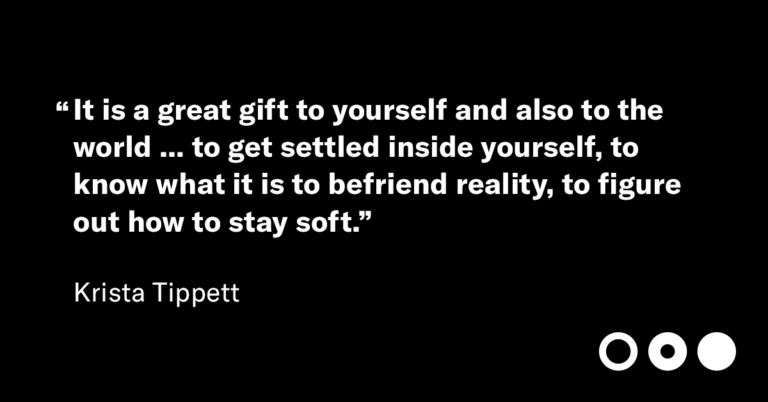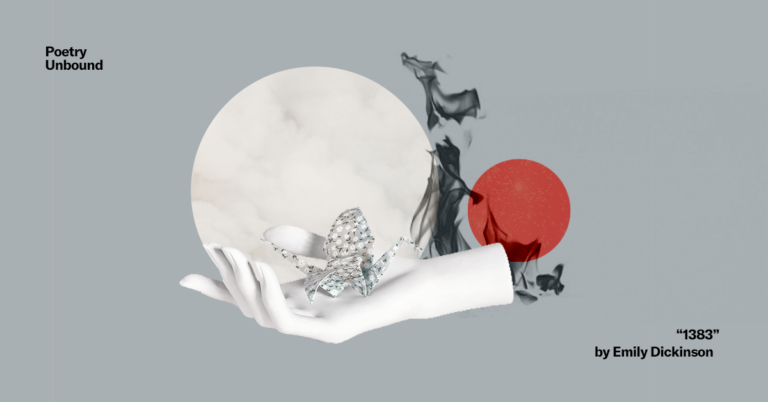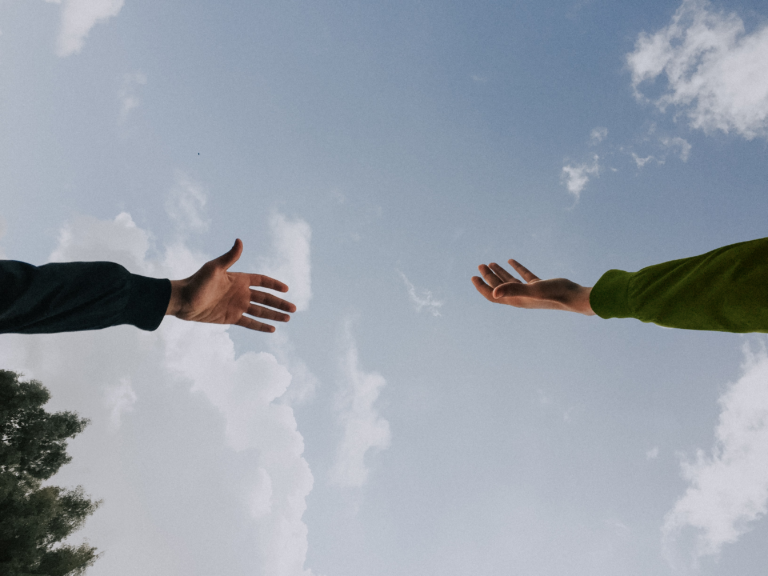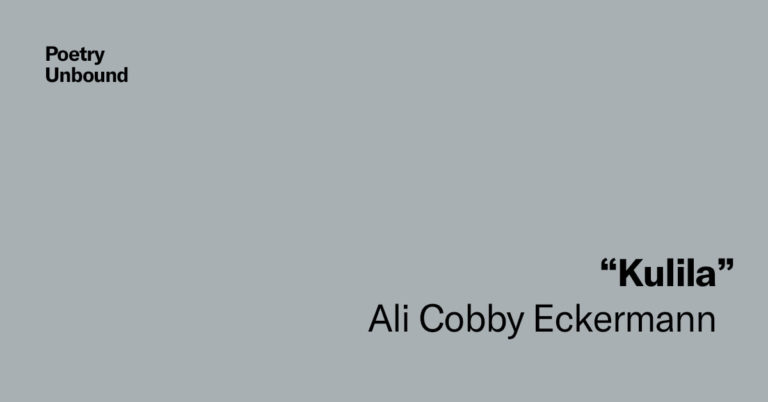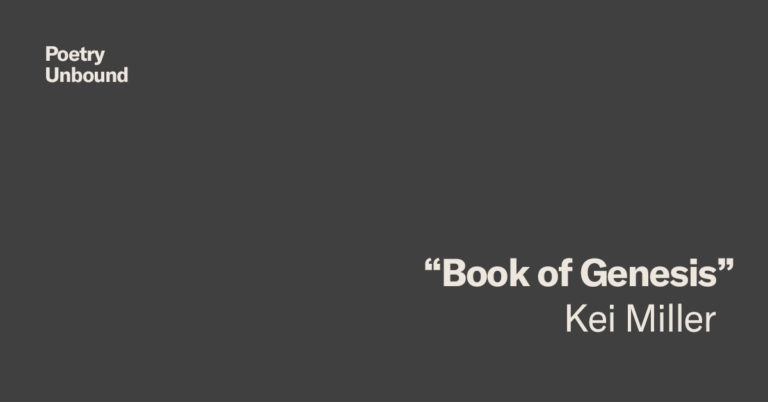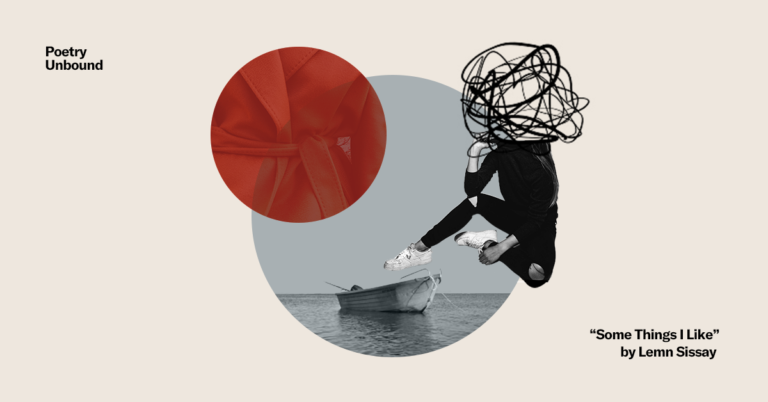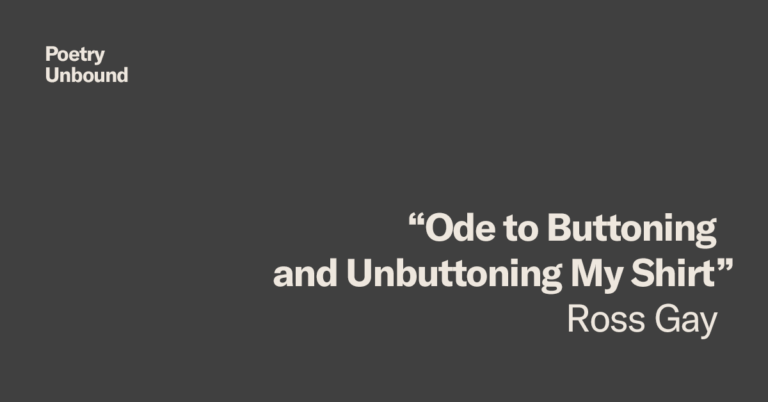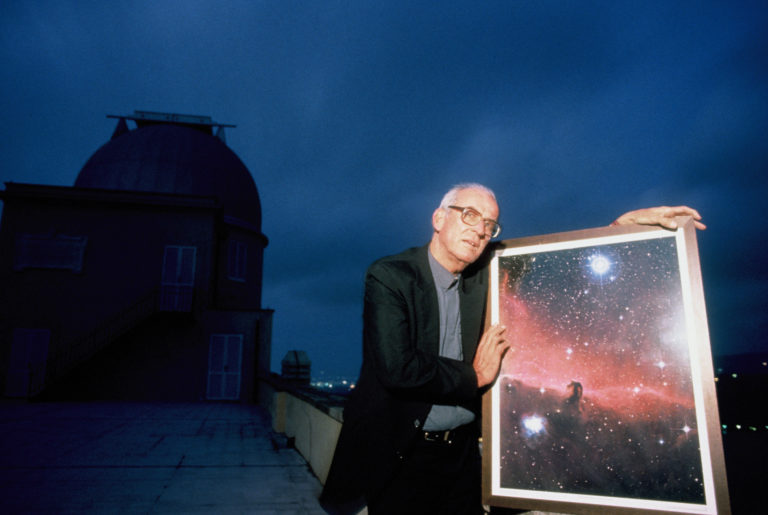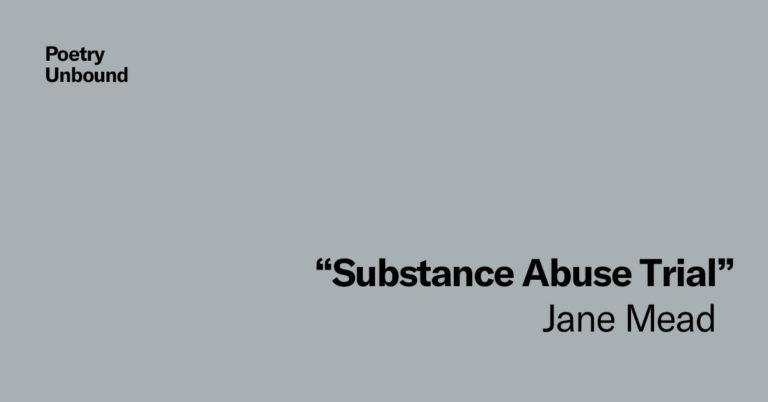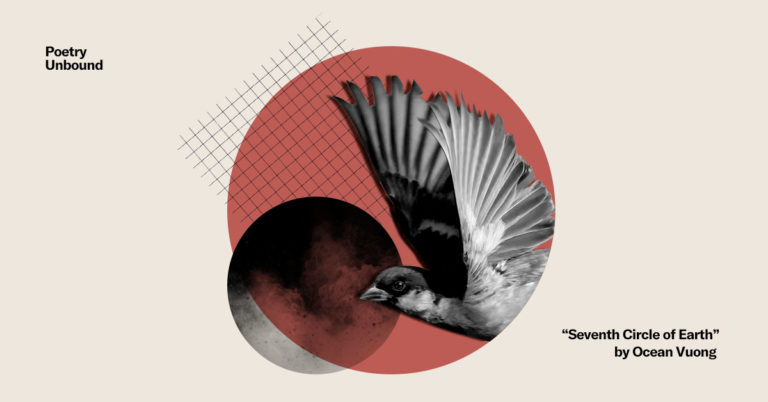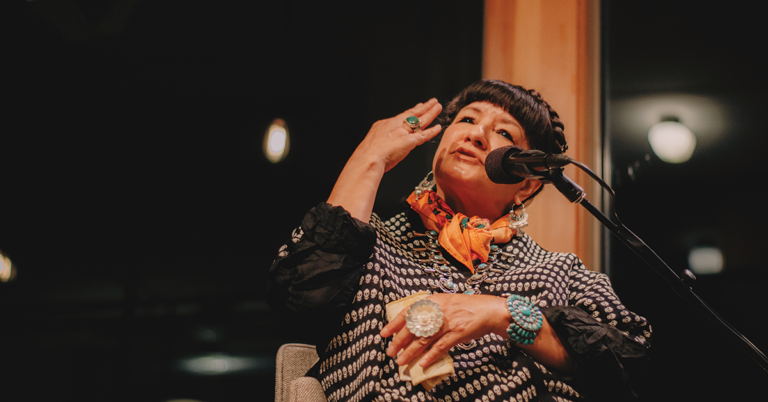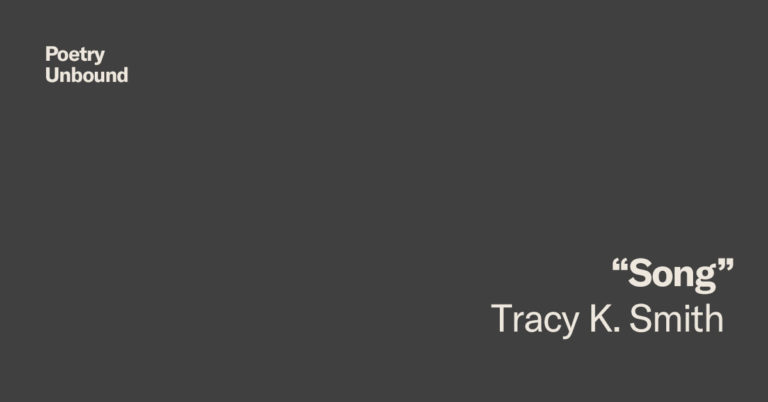March 31, 2020
Living the Questions
At home, frustrated, and stressed — is ‘just being’ worthy right now?
As Anna Bondoc from Los Angeles wrote to us: So many of us are raised to believe that hard work is what makes us valuable; many of our professions and even our identities as helpers are on hold. How does self-worth interact with just being when we feel we’re doing nothing? Krista reflects on the problem with the phrase “just being” — and how settling inside ourselves right now, and kindness towards ourselves, are gifts to the world we want to make beyond this crisis.
Living the Questions is an occasional On Being segment where Krista muses on questions from our listening community. Submit your own at [email protected].


